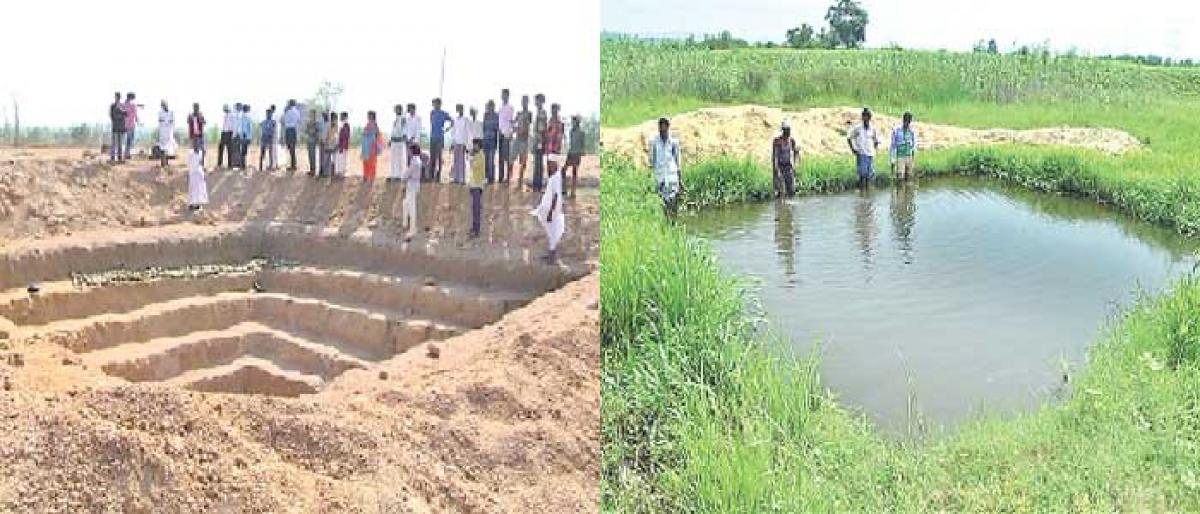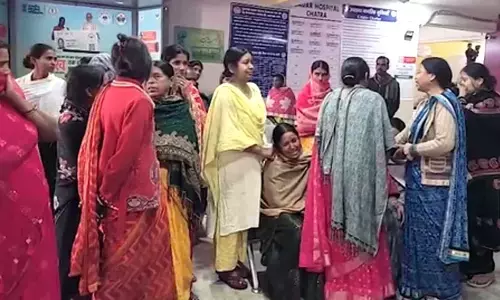Drought-hit hamlet turns sylvan wonder

In a role reversal of sorts, farmers of Chityal Chintal Bori, who earlier worked as farm labourers in adjacent villages and sold firewood to support families, have grown in stature and now become employers, thanks to the revolution brought out by digging farm ponds.
Adilabad: In a role reversal of sorts, farmers of Chityal Chintal Bori, who earlier worked as farm labourers in adjacent villages and sold firewood to support families, have grown in stature and now become employers, thanks to the revolution brought out by digging farm ponds.
The farm ponds irrigated the lands, quenched the thirst of the cattle, prevented the farmer from becoming an agricultural worker and helped him become an employer.
Earlier, the village population (500) reeled under successive droughts as water in agriculture wells touched the rock bottom. With no irrigation facility, the fertile fields became useless. Soon the fertile fields turned wastelands.
Some of the farmers cut firewood and sold it in market to support their families. At least 150 farmers cycling their way to Adilabad with firewood stacks on them was a common sight then. Some others turned adda coolies.
Construction of farm ponds under the NREGS brought about a sea change in farmers’ lives. Digging of farm ponds provided livelihood to the villagers.
Conserving every drop of rainwater and routing it to the farm pond transformed the ponds into mini tanks. Another positive development witnessed was improving of groundwater table in the village. The farmers are cultivating cotton, maize and soya under the ponds.
A villager, Pendur Ananda Rao, owner of five acres of land, became a casual worker for want of irrigation facility. There is an agriculture well in the village sans water in it.
Learning about digging farm pond as part of the NREGS, he dug a pond and conserved water. Currently, there is 12-feet deep water in the pond. He cultivated cotton in five acres and exuded confidence of raising maize in Rabi season.
Earlier, he used to fetch water from a distance of five km to apply pesticide to the cotton crop. Now, he draws water from his own pond whether it is for application of fertilizer or for irrigation of the crop.
Now, the farmers are raising three crops. The contours of the village have been changed completely because of the
farm ponds.
There is greenery all around. The farmers are raising cotton, soya and maize without any apprehension. Now, there is plenty of water for the cattle to satiate their thirst.
The onetime casual workers are now employing workers from other villages on their farms. The villagers say that the NREGS brought out sea change in their lives. Some farmers are digging bigger ponds for the benefit of other farmers besides meeting their irrigation needs.
Farm ponds brought sheen in the lives of poor tribal farmers helping them surpass difficulties caused by drought.









